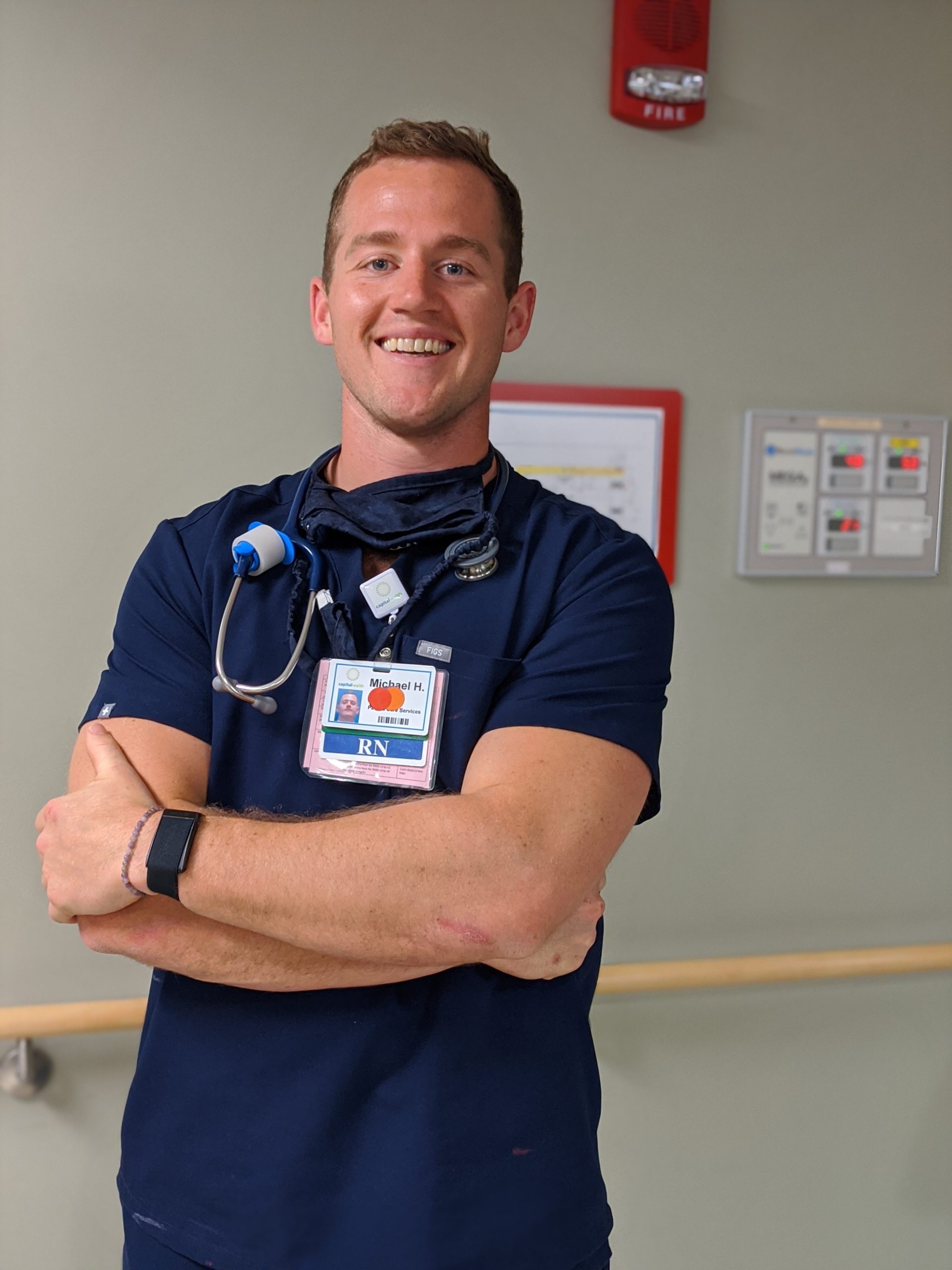
Q & A with Hirth
Q: We know you as ‘Hirth’ our MyZone and Functional Training coach. Tell us a little bit about yourself.
A: My name is Mike Hirthler and I am in love with the pursuit of wellness. I am very fond of the analogy that your body is a car. What fuel you give it, how hard you drive it, and your routine maintenance of it can all influence how long and how well your car will run.
I received my Bachelors of Science in Kinesiology from Penn State, and my Bachelors of Science in Nursing from Thomas Jefferson University. Both degrees taught me a lot about caring for our cars. Throughout the past 7 years I have been coaching Functional Training on and off while in school, coaching at a few different gyms all with different populations. My Functional Training experience has, and continues to, heavily influence my opinion of true health and wellness. Conversations on the importance of the low hanging fruit of wellness are often talked about in these gyms; nutrition, mindset, movement, stress and sleep.
Surprisingly, these conversations aren’t as common in the healthcare setting. This past January I began my first job as an RN at Capital Health in Trenton, and recently made my home on the Surgical Trauma unit. I think of myself as a healthcare worker supporting our nation’s health from two sides. The proactive provider (coaching Functional Training and helping members live healthier lifestyles to avoid chronic disease), and the reactive provider (helping patients in the hospital). Functional Training is the yin to my Nursing yang.
Q: What are you seeing at the health center where you work in light of COVID-19.
A: This pandemic has been really interesting to watch unfold. At Capital Health we are in relatively uncharted waters in an underprepared boat. The unit I work on treats post-op surgical and trauma patients. This is a large patient population in the Trenton community, so our unit has been treating our regular patients and overflow patients from the units that had to be transformed to COVID units. Currently, over half of the patients in our hospital are there with COVID. We are running low on essential PPE, policies and procedures are being changed daily, and nurses and doctors are treating different patient populations than they are used to. More and more employees are testing positive and are required to self quarantine, which stresses our staffing abilities. It is an uncomfortable time for most of my colleagues as they have to go home to their children and families with the uncertainty that they could be carrying the virus. On the other side of this storm, I have seen my colleagues come together, support each other, and even volunteer to go to the COVID units so someone else who is hesitant to wouldn’t have to. There has been amazing support from the community, including our Transcend family, and it has been extremely appreciated.
Q: What are the most important things we can do in an effort to stay virus free right now… speaking as a professional on the front lines?
A: It all boils down to a few simple steps you need to follow. Stay home unless going out for essential items. Do not socialize with any new people you haven’t been quarantining with. Wash your hands regularly and do not rub your eyes or bite your nails/fingers. If going into a public place, wear a mask if you have one or anything that adequately covers your mouth and nose. Disposable gloves in public are not necessary, just proper hand hygiene. Your ability to fight a virus depends on your state of health as well. So now more than ever it is important to eat right, get quality sleep, manage your stress and get outside each day.
Q:What is the hardest thing about your job?
A: I know the answer to this question will change over time, for as of now I have only been working as a nurse for about 3 months. The population I treat is one of patients who have experienced a random and traumatic life event. The course of their life may or may not be greatly altered, and their functional capacity is often affected temporarily if not permanently. There is a daily reminder, if not several, that anything can happen to anyone. That being said, it has only made me more grateful for the life I am able to live.
Q: So far, how do you deal with the stress of the traumas that you see weekly… any best practices, hacks for handling the stress of life.
A: My practices haven’t changed much since starting work. Most of my mornings, working or not, start with meditation and movement. I use the app Waking Up by Sam Harris for a 10 minute guided meditation. This ten minutes a day of quiet focus and attention has noticeably influenced my mindset and my reactivity to whatever arises throughout the day. Then I try to move for at least 10 minutes. Yoga, stretching, a run, a body weight workout, anything. If short on time, a few reps are better than none. I find I operate better and have more energy throughout the day if I start it with some movement.
Other ways of clearing my mind have been writing and reading. Trying to read a minimum of 10 pages a day and journal at least 2 pages. These two habits slip by me often, but when I am consistent with them I tend to find my mind at ease. Journaling has been a huge help for me over the past few years. The process of organizing and spilling your thoughts on paper opens up space in your mind and turns down some of the noise. I also eat a lot of Halo Top ice cream, and that makes me happy.